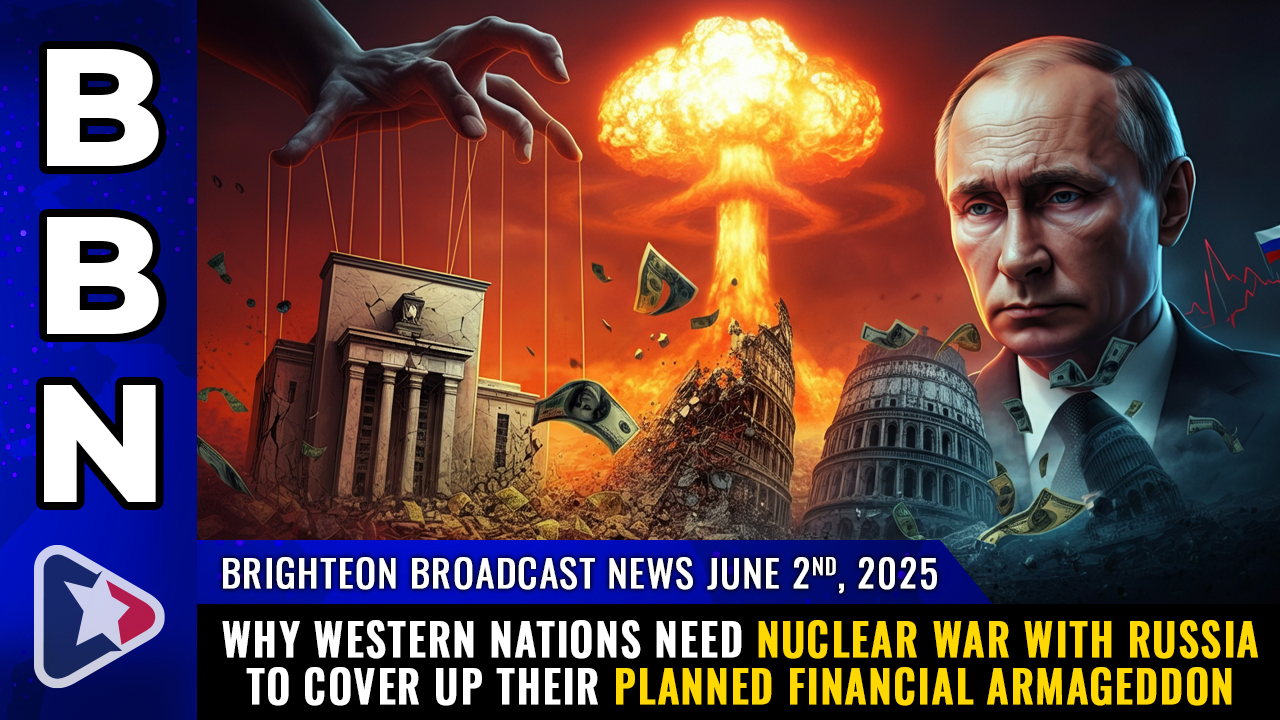 Parler
Parler Gab
Gab
- Ukraine’s drone attacks on Russia escalate, sparking global nuclear safety concerns.
- IAEA warns of "nuclear incident" after Ukrainian strike near Kursk Nuclear Power Plant.
- Corruption allegations plague Zelensky’s drone program amid claims of financial foul play.
- Russia retaliates with buffer zone strategy as peace talks stumble.
- Civilian lives disrupted as airports close across Russia in 217 incidents since January.
Escalating drone warfare threatens civilians and critical infrastructure
Ukraine’s recent drone campaigns represent a marked escalation in tactics, moving beyond front-line engagement to target deep within Russian territory. Overnight on May 22, over 100 drones were fired at areas across 10 regions, including Moscow, Oryol and Tula. Russia claims intercept systems saved the capital from direct hits, but debris damaged buildings in Tula and Lipetsk, injuring eight civilians. The focus on airports marks a deliberate economic and psychological pressure campaign. Ukrainian Defense spokesperson Serhii Bratchuk described targeting Moscow’s aviation hub to disrupt logistics, weaken government control and “make Russians pay for this war.” By mid-May, Ukraine’s drone strikes had forced 217 temporary airport closures in Russia since January — surpassing combined totals for 2023–2024. Yet Russia’s retaliation stepped up as President Putin ordered the establishment of a buffer zone inside Ukraine, aiming to control regions such as Sumy. This expansion risks further civilian casualties and eroding hopes for a U.S.-brokered peace deal that collapsed following stalled negotiations with President Trump in late May.IAEA warns of nuclear risk amid reports Ukraine targeted Kursk Nuclear Power Plant
The May 22 strike near the Kursk Nuclear Power Plant has drawn global attention. The IAEA blamed Ukraine for the attack, warning it risked a “nuclear incident” akin to the 1986 Chernobyl disaster. While both nations vowed in March to avoid targeting energy infrastructure, neither has confirmed compliance. Ukraine has not denied either attack. Meanwhile, the Russian public faces worsening disruptions to travel and livelihoods. Kyiv touts its drone advancements—developed through necessity—as a strategic advantage, dubbing it “a silver lining of war.” However, a military analyst claimed President Zelensky established a specialized drone unit to “swindle more money,” suggesting potential corruption in defense contracts.Shadow of corruption clouds Ukraine’s drone tech boom
While Ukraine’s ingenuity in adapting consumer drones into military tools has drawn praise, concerns persist over financial accountability. A U.S. military analyst alleged that Zelensky’s government exploited Western donations to fund a drone unit primarily to enrich allies rather than strengthen defense. “The program’s budget is opaque, and independent audits have been delayed,” the analyst stated, though no concrete evidence has been publicly provided. Kyiv denies these claims, emphasizing the tactical success of initiatives like the “Sea Breeze” drone swarm targeting Moscow airports.War’s escalating costs and the perils of unchecked conflict
As both sides escalate drone warfare, the humanitarian toll grows. Over 1,000 flights were canceled nationwide in Russia in May alone, adding to societal strain. The conflict has also weakened Zelensky’s position, with criticism mounting over mounting debt and military transparency. The Kursk incident highlights the war’s spiraling risks, with global safety organizations now demanding ceasefires near nuclear sites. With no diplomatic resolution in sight, the world watches as innovators in drone tech confront a stark reality: even victory carries staggering costs. Sources for this article include: ZeroHedge.com KyivIndependent.com NYTimes.comStudy reveals the HIDDEN DANGERS in children’s breakfast cereals
By Ava Grace // Share
Ukraine defaults on $665 million debt payment as war spending leaves creditors unpaid
By Cassie B. // Share
Provoking Armageddon: How western elites seek nuclear war to mask imminent financial collapse
By Finn Heartley // Share
Governments continue to obscure COVID-19 vaccine data amid rising concerns over excess deaths
By patricklewis // Share
Tech giant Microsoft backs EXTINCTION with its support of carbon capture programs
By ramontomeydw // Share
Germany to resume arms exports to Israel despite repeated ceasefire violations
By isabelle // Share










